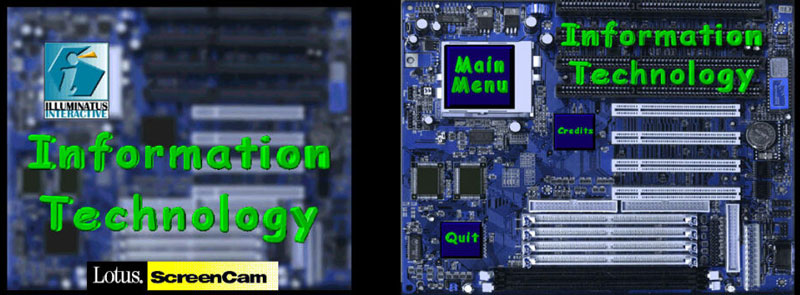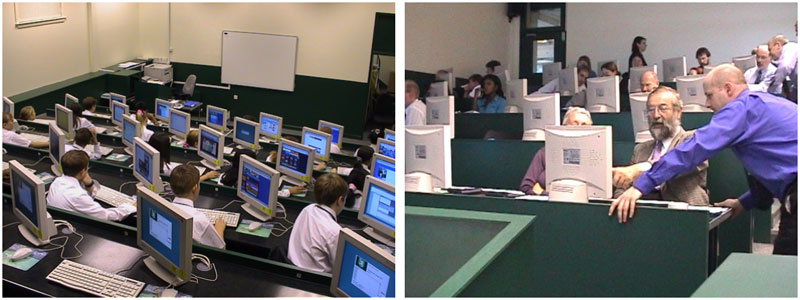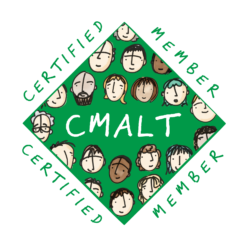
Hi, I’m Craig Smith and I have been using learning technologies since the mid-1990s, when Microsoft Office was installed from 30 floppy disks!
In 1996, I qualified as a science teacher where I gained my interest in learning technology after using computer data-logging in science experiments. My growing curiosity in the role of technology in education was the reason I switched to teaching Information and Communications Technology (ICT). I taught the 11-16 age group, initially teaching students how to use Word, PowerPoint, Publisher, Excel and the Microsoft Works Database and also had responsibility for the development of cross-curricular ICT.
Back then, there were no digital learning resources for ICT and, despite BBC Bitesize being launched in 1998, ICT was not yet one of the subjects covered. In order to motivate pupils, I needed some way of making revision a little more interesting than simply reading past exam papers.

I did this by creating my own revision package using Digital Workshop’s multimedia authoring software, ‘Illuminatus’, which has since been replaced by Opus Creator. I chose to create this package using the software because of the support of common image and video formats and the easy-to-understand user interface which didn’t require me to learn any programming language. The revision package was commented on favourably by Ofsted in 2000:
“Teachers use a good range of learning resources. For example, during revision lessons, pupils were using an interactive CD ROM prepared by the teachers in the school to help them revise the information in a more interesting way”.
OFSTED, Great Barr School, March 2000

I developed my early resources into a website, containing many learning materials I’d created to help with coursework and revision, and this was used by both students and staff.

In January 2009, I completed and passed the Open University course GE020 Using VLEs in my teaching to further my knowledge and understanding of learning technology, and this showed me how VLEs can be used for assessment and to support collaborative work in the classroom and ‘out-of-school’ learning.
Since leaving secondary school teaching in 2013, my roles have included Qualified Assessor/Trainer for Digital Apprenticeships such as Creative & Digital Media and Digital Marketing. The learning platform I used to support apprentices was Canvas. I talk about the experience I gained in video production at that time in the Specialist Option: video section.
Since 2019, I have been an Online Learning Technologist with the Institute of Policing at Staffordshire University, UK, where I support academic staff in the development and use of technology to deliver a high-quality learning and teaching experience by providing support, training and technical administration. I also support student police officers and police trainers across Staffordshire Police, West Mercia Police, West Midlands Police and Warwickshire Police.
CMALT and future career aspirations
Despite a career of nearly 25 years using learning technology in traditional classroom teaching, one-to-one training, eLearning, and live virtual classroom training, I realised that I didn’t have anything to show for it. I decided that I wanted some recognition of my knowledge, skills and experience in the area of learning technology. I was selected as a Microsoft Innovative Educator (MIE) Expert in early 2021 and I now want to gain CMALT accreditation.
I believe that joining the collaborative community in the ALT will help with my professional development. In the future, I would like promotion to a role such as Senior Learning Technologist, Digital Learning Manager or TEL Learning Manager and, as I know the CMALT accreditation is recognised by many employers and frequently appears in lists of “desirables”, I believe this will improve my career prospects.

